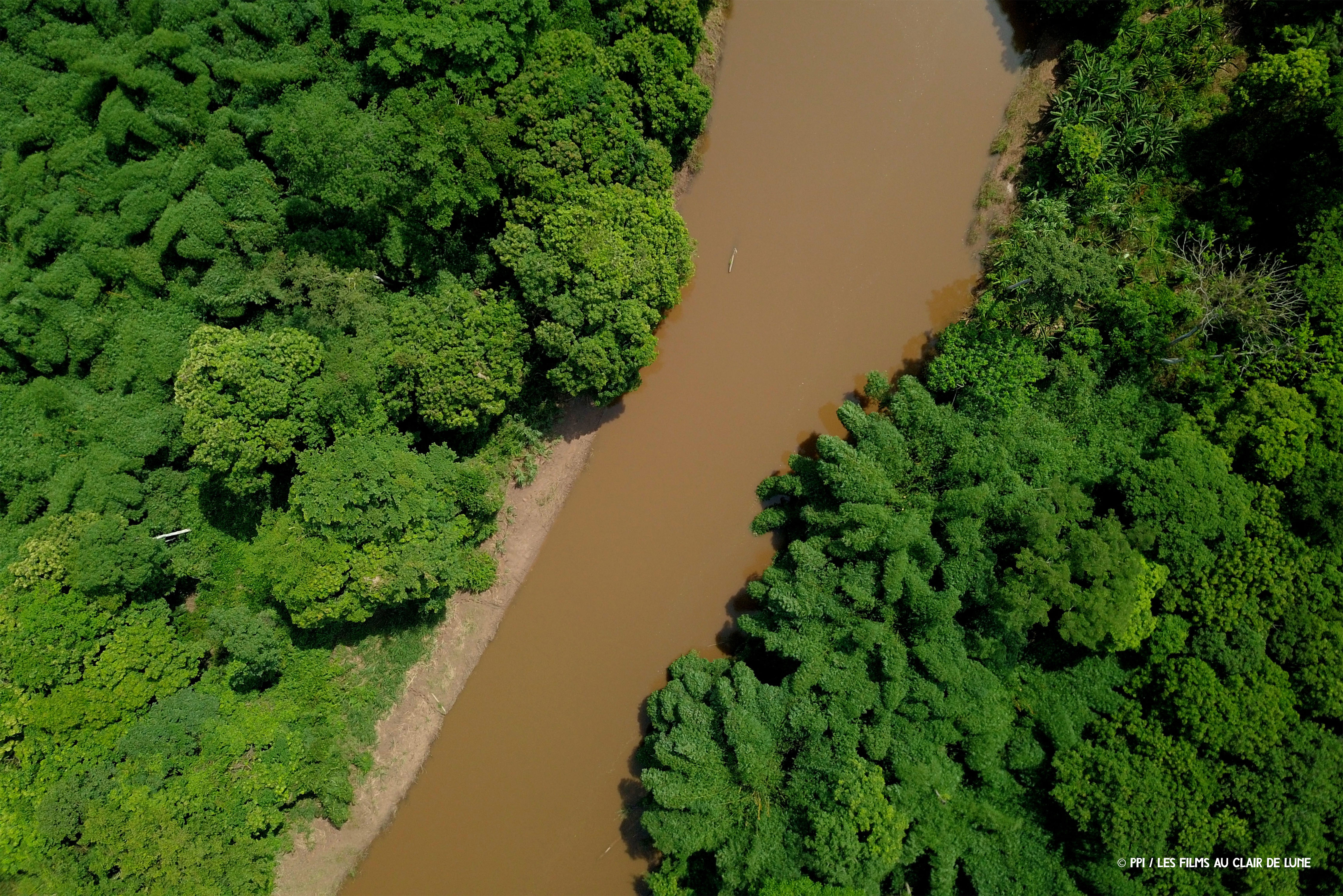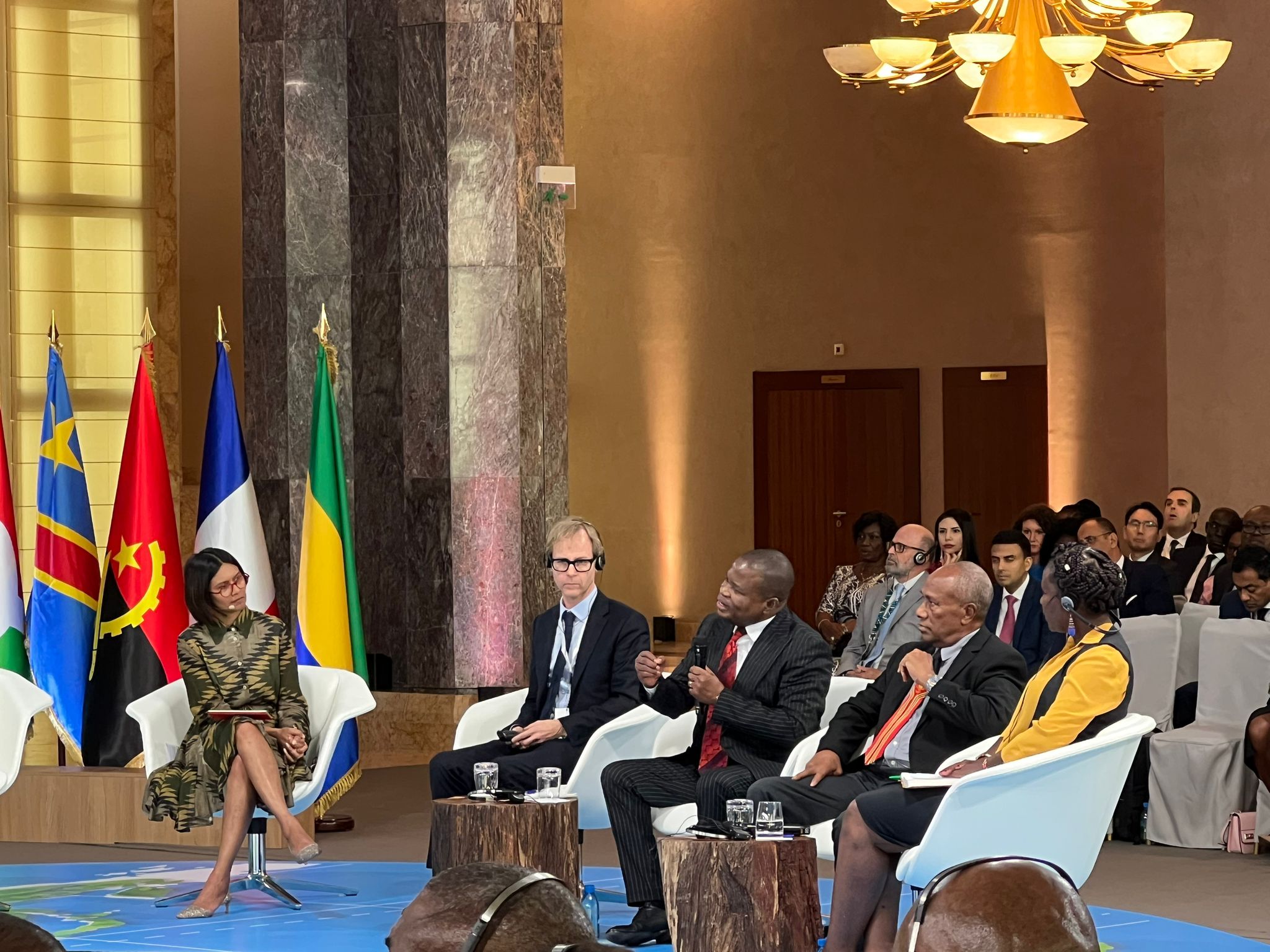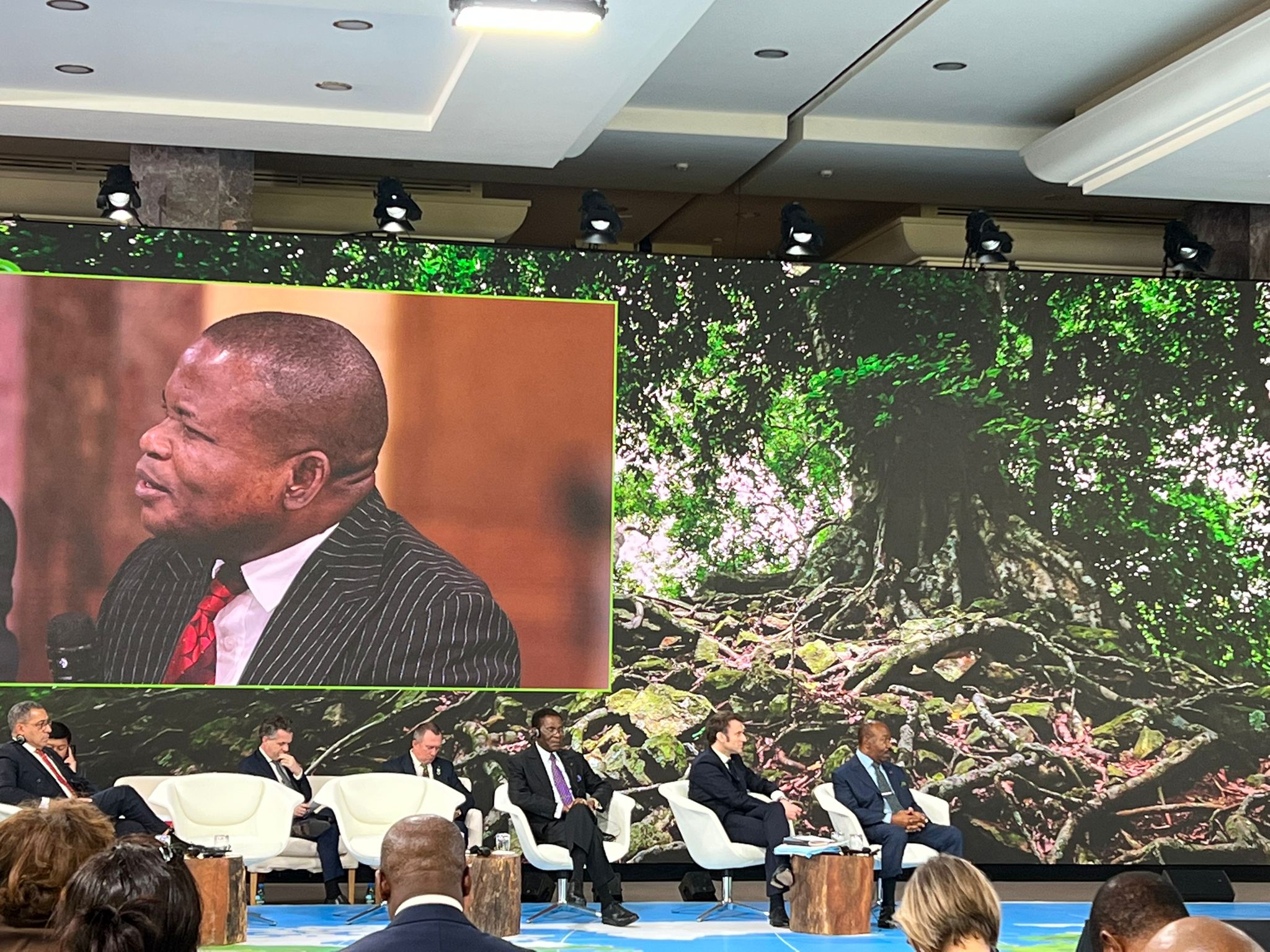
Mbou-Mon-Tour at the “One Forest Summit”
Published on 14 March 2023
The Congolese NGO Mbou-Mon-Tour, recognised for its innovative approach to bonobo conservation in Central Africa and a PPI partner since 2013, took part in the international summit for the protection of forests, the “One Forest Summit”. The event was held from 1 to 2 March in Libreville, Gabon, and was attended by a dozen heads of state and government from the region, including Emmanuel Macron, Denis Sassou Nguesso, Ali Bongo and Sama Lukonde, Prime Minister of the Democratic Republic of Congo. The organisation was represented at this high-level meeting by its Executive Committee Chairman, Jean-Christophe Bokika Ngawolo.
“Conservation action without the involvement of local communities before and during project implementation is doomed to failure”
The purpose of the Libreville summit was to find concrete solutions to reconcile the sustainable management of tropical forests with the economic development of forest countries. Several political and governmental authorities as well as members of civil society took part in the meeting.
The Executive President of the Congolese NGO Mbou-Mon-Tour was among the few personalities invited to speak at this high-level meeting.
His speech focused on the NGO’s innovative approach to bonobo conservation, which is based on the promotion of traditional cultural values in the cohabitation between bonobos and the populations of the Mbali River Local Communities Forestry Concession (CFCL-RM).
The Mbali River Local Community Forest Concession is a grouping of local community forest concessions from 7 villages in the Mbee-Nkuru grouping, in the Batéké Nord chiefdom, Bolobo territory, Mai-Ndombe province, which have joined forces to ensure better management of conservation and development activities and to facilitate joint development operations.
“Local communities are great protectors of forests and biodiversity. Congolese legislation gives local communities the possibility to create community forests. However, the latest statistics from the Ministry of the Environment show that more than 70% of the requests concern biodiversity conservation. Communities should have taken the opportunity to destroy, as some think, but they took the option to create community forests to protect biodiversity” revealed Jean-Christophe.
The communities in these 7 villages have dedicated part of their forest to the preservation of bonobos and small monkeys.
“A conservation action that is carried out without the involvement of local communities upstream and during the execution of the project is doomed to failure ” continued Jean-Christophe.
It should be noted that Mbou-Mon-Tour is developing a mode of communication adapted to local customs through the use of popular songs based on Teke customs prohibiting the hunting and consumption of bonobo meat.
“The bonobo is considered a human being in our country” said Jean-Christophe Bokika. “Legend has it that it lived with humans. It is because he could not ‘honour his debt’ that he preferred to take refuge in the forest.“
Jean-Christophe also took the opportunity to plead for the recognition of ancestral knowledge in the protection of bonobos.
“I take the opportunity, as the Prime Minister of my country is here, that such a custom which has protected the bonobos only 300 km north of Kinshasa should be registered as national heritage and that tomorrow or the day after, the government should send a request to UNESCO for this custom to be registered as a world heritage site, as was done with the rumba ” he concluded.
The NGO Mbou-Mon-Tour was created in 1997 by a few university managers and farmers from the village of Nkala, in the Bolobo Territory, Maï-Ndombe Province. This territory has one of the highest densities of bonobos, an endemic species in the country and endangered according to the IUCN Red List.

